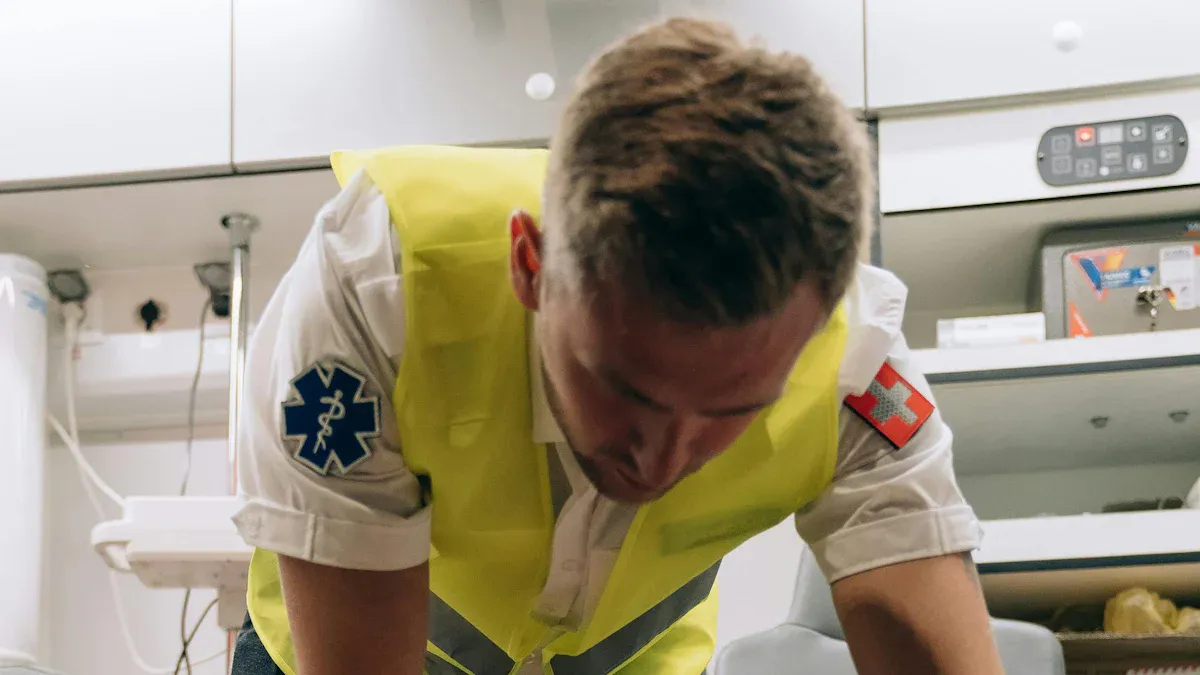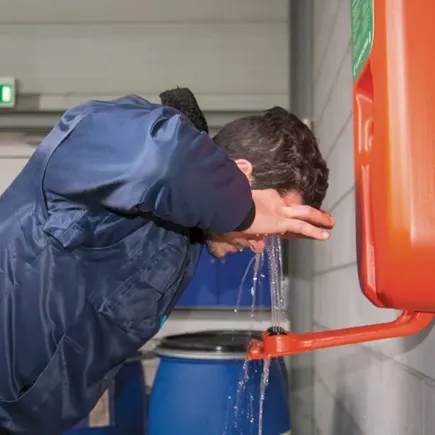
What comes to mind when you think of the hardest job in the world? Maybe it’s the firefighter running into burning buildings or the emergency medical technician (EMT) saving lives in chaotic situations. Perhaps it’s the parent juggling endless responsibilities or the teacher shaping young minds. These roles demand more than just skill—they require resilience, sacrifice, and an unshakable commitment to others. Whether it’s a miner working deep underground or a healthcare worker on the frontlines, these jobs push people to their limits, both physically and emotionally. They remind us of the strength it takes to serve, protect, and care for others.
Key Takeaways
Tough jobs need physical strength, emotional toughness, and mental focus.
Jobs like parenting and healthcare need kindness and emotional strength.
High-pressure jobs, like surgeons and air traffic controllers, need fast decisions.
Helping and respecting people in hard jobs builds a kinder society.
Small thank-you gestures can mean a lot to hardworking people.
Defining the hardest job

What makes a job the hardest job in the world? It’s not just about how tough it looks from the outside. The hardest jobs are defined by a mix of physical, emotional, and mental challenges. Let’s break it down.
Physical demands
Some jobs push your body to its limits. Imagine working long hours in extreme heat, freezing cold, or dangerous environments. Firefighters, for example, carry heavy equipment while battling flames. Healthcare workers spend hours on their feet, lifting patients and responding to emergencies. These roles demand strength, stamina, and endurance.
But it’s not just about physical strength. Working conditions also play a big role. Jobs like mining or construction often involve hazardous environments where safety is a constant concern. The physical toll of these jobs can leave you exhausted, yet the work must go on.
When considering the presidency, a president also faces significant physical demands. The role of a president encompasses a wide range of presidential responsibilities, which often require physical and mental endurance. A president may have to travel extensively, attend long meetings, and deal with high-pressure environments. Just as in physically demanding professions like those of firefighters or healthcare workers, the presidency can be a physically taxing job.
Emotional challenges
Now, think about the emotional side. Some jobs require you to stay calm and compassionate, even in heartbreaking situations. Caregivers, for instance, often deal with people who are sick, elderly, or in pain. It’s emotionally draining to see someone suffer and still give them your best every day.
Then there are emergency responders, like paramedics or police officers, who face life-and-death situations. They carry the emotional weight of their decisions, knowing their actions directly impact others. These roles require emotional resilience and the ability to bounce back, even after the most difficult days.
In the context of the presidency, a president frequently has to make life-and-death decisions. With great presidential power comes the heavy emotional burden of leading a nation. The president must navigate through complex issues and situations, all while being in a high-pressure environment. Similar to emergency responders, the president’s role is one of the most demanding professions, where emotional resilience is crucial to deal with the stress and emotional toll that comes with making decisions that can have far-reaching consequences for the country and its people. The presidency is a unique position where both physical and emotional challenges are constantly present as the president fulfills their presidential responsibilities.
Mental strain
Finally, there’s the mental strain. Some jobs demand quick thinking and decision-making under pressure. Air traffic controllers, for example, manage the safety of thousands of passengers every day. Surgeons make life-saving decisions in the operating room, where even a small mistake can have huge consequences.
High-stakes jobs like these require focus, problem-solving skills, and the ability to handle stress. The mental load can be overwhelming, but it’s part of what makes these roles so challenging.
When you combine physical demands, emotional challenges, and mental strain, you get a clearer picture of what makes a job truly difficult. These factors, along with responsibility, impact on others, and working conditions, define the hardest jobs in the world.
Criteria for the hardest professions in the world

What makes some jobs stand out as the hardest professions in the world? It’s not just about how tough they look. These roles demand a unique mix of physical, emotional, and mental strength. Let’s dive into the key criteria that define them.
High physical endurance and risk
Some jobs push your body to the edge. Imagine being a firefighter running into a burning building or a construction worker balancing on a high beam. These roles require incredible stamina and strength. You’re not just working long hours—you’re doing it in dangerous conditions.
Take the military, for example. Soldiers often face extreme environments, from scorching deserts to freezing mountains. They carry heavy gear, march for miles, and stay alert in life-threatening situations. The physical toll is immense, but the risks are even greater. These jobs demand more than just endurance—they require courage.
Emotional labor and sacrifice
Now, think about the emotional side of things. Some jobs ask you to give a piece of yourself every day. Caregivers, for instance, spend their days helping others, often at the expense of their own well-being. You might feel drained after comforting someone in pain or dealing with loss.
Teachers and social workers also face emotional challenges. You’re not just doing a job—you’re shaping lives. It’s rewarding, but it can also be heartbreaking. These roles require you to care deeply while staying strong enough to keep going.
Decision-making and accountability under pressure
Finally, there’s the mental strain. Some jobs demand quick decisions that can change lives. Surgeons, for example, make split-second choices in the operating room. Air traffic controllers manage the safety of thousands of passengers every day.
These roles come with enormous responsibility. You’re not just making decisions—you’re accountable for them. The pressure can be overwhelming, but it’s part of what makes these jobs so difficult.
When you combine these factors, it’s clear why these roles are among the hardest professions in the world. They test your limits in every way possible.
Examples of the most difficult jobs in the world
Caregiving roles
Parenting and unpaid caregiving
Parenting is one of the most challenging jobs you’ll ever take on, and it doesn’t come with a manual. You’re responsible for shaping a child’s future while juggling endless tasks like cooking, cleaning, and teaching. It’s a 24/7 role with no breaks, and the emotional toll can be immense. Unpaid caregivers face similar struggles. Whether you’re caring for an elderly parent or a loved one with a disability, the physical and emotional demands can feel overwhelming. Yet, these roles are often overlooked despite their importance.
Professional caregivers and healthcare workers
Professional caregivers and healthcare workers dedicate their lives to helping others. Imagine being a nurse working long shifts, constantly on your feet, and making life-saving decisions. You’re not just treating illnesses—you’re offering comfort and hope to patients and their families. The emotional weight of seeing people suffer, combined with the physical demands, makes this one of the hardest professions in the world.
Emergency responders
Firefighters and paramedics
Firefighters and paramedics face danger every day. You might rush into burning buildings or perform CPR on someone in critical condition. These roles require quick thinking, physical strength, and emotional resilience. You’re often the first on the scene, making split-second decisions that can save lives. It’s not just a job—it’s a calling.
Police officers and disaster relief workers
Police officers and disaster relief workers deal with high-pressure situations that test their limits. You might manage chaotic scenes, protect communities, or provide aid during natural disasters. These roles often involve coordinating with multiple teams and agencies, which can complicate communication and decision-making. The stakes are high, and the challenges are endless.
High-stakes professions

Military personnel in active duty
Serving in the military is one of the most difficult jobs in the world. You’re not just enduring harsh environments—you’re making life-or-death decisions under extreme pressure. Whether you’re on the frontlines or supporting operations, the physical and mental demands are unmatched. The sacrifices you make, from time away from family to risking your life, highlight the courage it takes to serve.
Air traffic controllers and surgeons
Air traffic controllers and surgeons work in environments where mistakes aren’t an option. As an air traffic controller, you’re responsible for the safety of thousands of passengers, managing multiple flights at once. Surgeons, on the other hand, perform intricate procedures where every move matters. These roles require intense focus, quick decision-making, and the ability to handle stress like a pro.
Overlooked yet demanding jobs
Sanitation workers and manual laborers
Have you ever thought about the people who keep your city clean and running smoothly? Sanitation workers and manual laborers often go unnoticed, but their work is essential. Imagine waking up before dawn to collect trash, clean streets, or repair infrastructure. These jobs demand physical strength and endurance. You’re lifting heavy loads, working in harsh weather, and dealing with unpleasant conditions.
Sanitation workers, for example, handle waste that most people wouldn’t want to touch. They face health risks from exposure to hazardous materials and sharp objects. Yet, they keep our communities livable. Manual laborers, like construction workers, build the homes, roads, and buildings we rely on daily. Their work is physically exhausting and often dangerous. Despite the challenges, these roles rarely get the recognition they deserve.
Teachers and social workers
Now, let’s talk about teachers and social workers. You might not think of these as the hardest job, but they’re incredibly demanding. Teachers don’t just teach—they inspire, guide, and shape the future. You’re managing a classroom full of students, each with unique needs and challenges. It’s not just about lessons; it’s about patience, creativity, and emotional resilience.
Social workers face similar pressures. You’re helping people through some of the toughest moments in their lives. Whether it’s supporting families in crisis or advocating for vulnerable individuals, the emotional toll can be overwhelming. These roles require compassion, problem-solving skills, and an unshakable commitment to making a difference.
Both teachers and social workers are vital to society. They may not always get the spotlight, but their impact is immeasurable.
Challenges of the hardest professions in the world

Stress and burnout
Have you ever wondered how people in the most difficult jobs in the world manage their stress? These roles often come with intense pressure and long hours. You might feel like there’s no time to rest or recover. For example, emergency responders like paramedics or firefighters face life-threatening situations daily. The constant adrenaline rush can leave you physically and mentally drained.
Burnout is another big challenge. When you’re always giving your best, it’s easy to feel exhausted. Healthcare workers, teachers, and social workers often experience this. You might feel like you’re running on empty, but the work doesn’t stop. Stress and burnout can take a toll on your health, relationships, and overall happiness.
Sacrifices made
The hardest professions in the world demand more than just hard work. They require sacrifices. Think about military personnel. You might spend months or even years away from your family. You miss birthdays, holidays, and important milestones. It’s not just time—you’re also risking your life to serve your country.
Parents and unpaid caregivers make sacrifices too. You might give up your career or personal goals to care for someone else. It’s a selfless act, but it can feel isolating. These sacrifices show the dedication and courage it takes to take on such roles.
Societal impact
Despite the challenges, these jobs have a huge impact on society. Imagine a world without teachers, healthcare workers, or sanitation workers. It wouldn’t function. These roles keep communities safe, healthy, and educated.
The people in these professions inspire others. They show what it means to be resilient and selfless. By recognizing their contributions, you can help create a more supportive and appreciative society. Their work reminds us that even the most difficult jobs in the world are essential for everyone’s well-being.
The hardest jobs in the world remind you of what it means to be resilient and selfless. These roles teach valuable lessons, like finding fulfillment even in the face of challenges. They highlight the importance of dedication and the impact one person can have on society.
These jobs require emotional strength and high-level skills.
They show how pursuing a passion, even in tough careers, can lead to personal growth.
By recognizing and supporting these individuals, you help create a more compassionate and appreciative world. Their work deserves respect and gratitude.
FAQ
What makes a job the hardest in the world?
It’s not just about physical effort. The hardest jobs combine physical endurance, emotional resilience, and mental focus. You’re often juggling high stakes, long hours, and immense responsibility. These roles push you to your limits and demand unwavering dedication.
Why are caregiving roles considered so challenging?
Caregiving requires constant emotional strength and selflessness. Whether you’re a parent or a healthcare worker, you’re responsible for someone’s well-being. The emotional toll of seeing others in pain, combined with physical exhaustion, makes caregiving one of the toughest jobs.
How do people in high-stakes jobs handle stress?
They rely on training, teamwork, and mental discipline. Many also use stress management techniques like mindfulness or exercise. Staying focused on their purpose helps them push through tough moments.
💡 Tip: Building a strong support system can make a huge difference in handling stress.
Are overlooked jobs like sanitation work really that hard?
Absolutely! These jobs demand physical strength, long hours, and exposure to tough conditions. Sanitation workers, for example, face health risks daily while keeping communities clean. Their work is essential, even if it doesn’t always get the recognition it deserves.
How can you support people in these demanding roles?
Start by showing appreciation. A simple “thank you” can mean a lot. Advocate for better working conditions and fair pay. You can also educate others about the importance of these roles to create a more supportive society.
🙌 Remember: Gratitude goes a long way in recognizing their efforts.
See Also
Selecting Ideal Universal Absorbent Socks for Your Business Needs
Useful Tips for Users of Oil-Only Absorbent Socks
Understanding Practical Uses of Oil Absorbent Socks
A Comprehensive Overview of Oil-Only Absorbent Pillows
Evaluating UPQUARK Marine Absorbents for Effective Oil Spill Response

